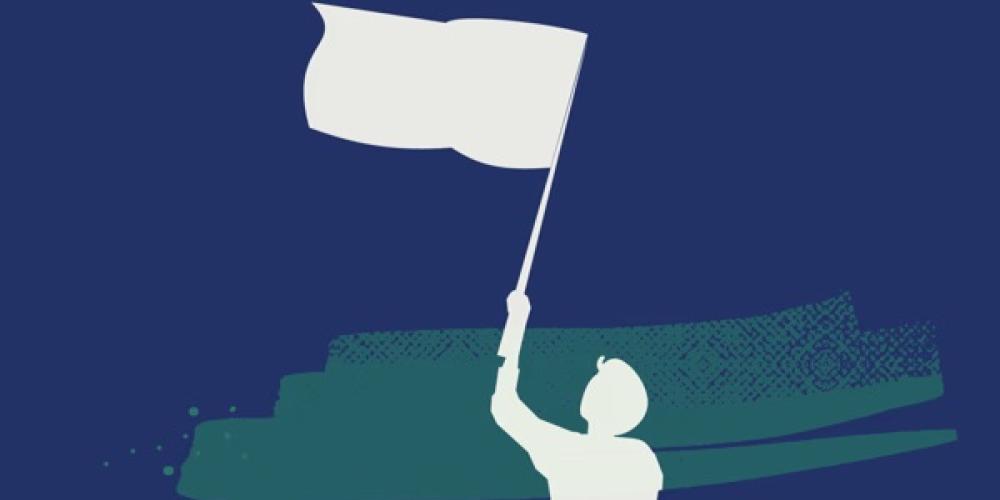
The unprecedented escalation of violence between Israel and Hamas is taking a devastating toll on civilians. We are calling for an immediate ceasefire to put an end to the rising number of civilian deaths and to enable humanitarian aid.
We stand unambiguously on the side of international law. War crimes and crimes against humanity committed by all parties must be investigated and tried by the International Criminal Court. European leaders must act against the underlying causes of the recurring cycles of violence in Palestine and Israel. Addressing the roots of this conflict is more needed than ever. We must oppose terror as an instrument, while dismantling the Israeli system of occupation and colonisation.
The brutal violence in faraway countries also has a major impact here. The impact is greatest for those who have family, loved ones and contacts living in the region, but it is also intense for those who may be otherwise affected. There are voices calling for peace and connection, but equally, differences between people are coming into sharp focus and there is a rise in feelings of fear, tension and an us-versus-them mentality.
We are not powerless. We must continue to pressure our leaders to stop this horrific conflict, while ensuring our society does not become even more divided. How can we do this?
INFORM YOURSELF
There are many news stories published via social and traditional media. We also hear very different views and opinions from family, friends and colleagues. It's therefore important to inform yourself.
- Watch the video Understand the conflict by Universiteit van Nederland.
- Watch the video Who does the Promised Land belong to? by Universiteit van Vlaanderen.
- Read the book Israel & Palestine: Cards on the Table (2016) by Brigitte Herremans and Ludo Abicht.
- Read the book Israel-Palestine, dialogue on causes and solutions (2023) by Ludo Abicht and André Gantman, and read the discussion about the book by former Middle East journalist Sus Van Elzen
“To think with an enlarged mentality means that one trains one's imagination to go visiting.” – Hannah Arendt
The history of the conflict is complex and layered, and reaching solutions requires multiple voices and diverse perspectives.
Thinking, for Hannah Arendt, is always representative thinking: that is, trying to keep in your mind all the possible viewpoints of others - even if they differ fundamentally from your own. Don't shy away from conflicting views, but explore them to form your own judgement.
USE SOCIAL MEDIA CONSCIOUSLY
Social media allows us to follow events very closely. That can boost our sense of outrage and our desire to act.
Bear in mind, however, that not everyone sees the same content online. Social media platforms are programmed to offer individuals siloed and increasingly extreme content.
What's more, there are many fake messages and fake videos circulating, depicting old footage, wrong locations or a combination. Remain critical and cautious of what you see.
SHARE YOUR FEELINGS
The images and reports we see and hear are horrifying. If they cause you to feel anger, fear, grief or other intense emotions, talk about it with others. You don't have to process your feelings alone. Do you find that news about the situation often triggers your emotions? Try limiting your news consumption to a few times a day.
If you become involved in conversations about the conflict at school, work or anywhere else, remain calm, even if you don't agree with the other person. Understand why you think what you do, and why others may have a different opinion. Be empathetic. Indicate if you would rather not talk about the subject.
- The EDUbox Wij-zij-denken course allows young people to practise dealing with disagreements in class.
- Parallel Histories offers a new way to study the history of conflicts. Challenge students to discuss alternative interpretations before they form their own opinions.
- Can Israelis and Palestinians see eye to eye? Watch the video by Creators for Change.
SUPPORT THOSE BEING TARGETED
Intense emotions lead to even more intense emotions. Different population groups are facing heightened distrust and reinforced prejudice because of the conflict. There is real fear of growing antisemitism and Muslim hatred. Continue to fight against lumping entire groups of people together. All these people are individuals who will view the conflict differently. Hate is never the answer.
“Every atom of hatred added to the world makes it an even more inhospitable place.” – Etty Hillesum
MAKE YOUR VOICE HEARD
Call on Belgian and European leaders to urge all parties to implement a humanitarian ceasefire.
- Speak out.
- Email or write to politicians.
- Sign the petition by Amnesty International.
AS A PROFESSIONAL
As a professional, have you noticed an increase in tensions on this subject in your class, work or neighbourhood? The dossier by the Dutch knowledge institute Movisie offers lots of tools.
Hannah Arendt Institute
The Hannah Arendt Institute for citizenship, urbanity and diversity is an initiative by the Vrije Universiteit Brussel (VUB) and the University of Antwerp (UAntwerp), with the support of the city of Mechelen. KU Leuven, Ghent University and Hasselt University have since joined the project. The Hannah Arendt Institute makes scientific insights accessible to policymakers, professionals and citizens so they can apply them in practice. It focuses on societal challenges such as migration, diversity and inequality, as expressed most strongly in an urban context. It also explores the impact of disinformation and polarisation, and the pressure on democratic values. Led by Christophe Busch, the institute is housed in the historic De Zalm site in Mechelen, with space to provide training.